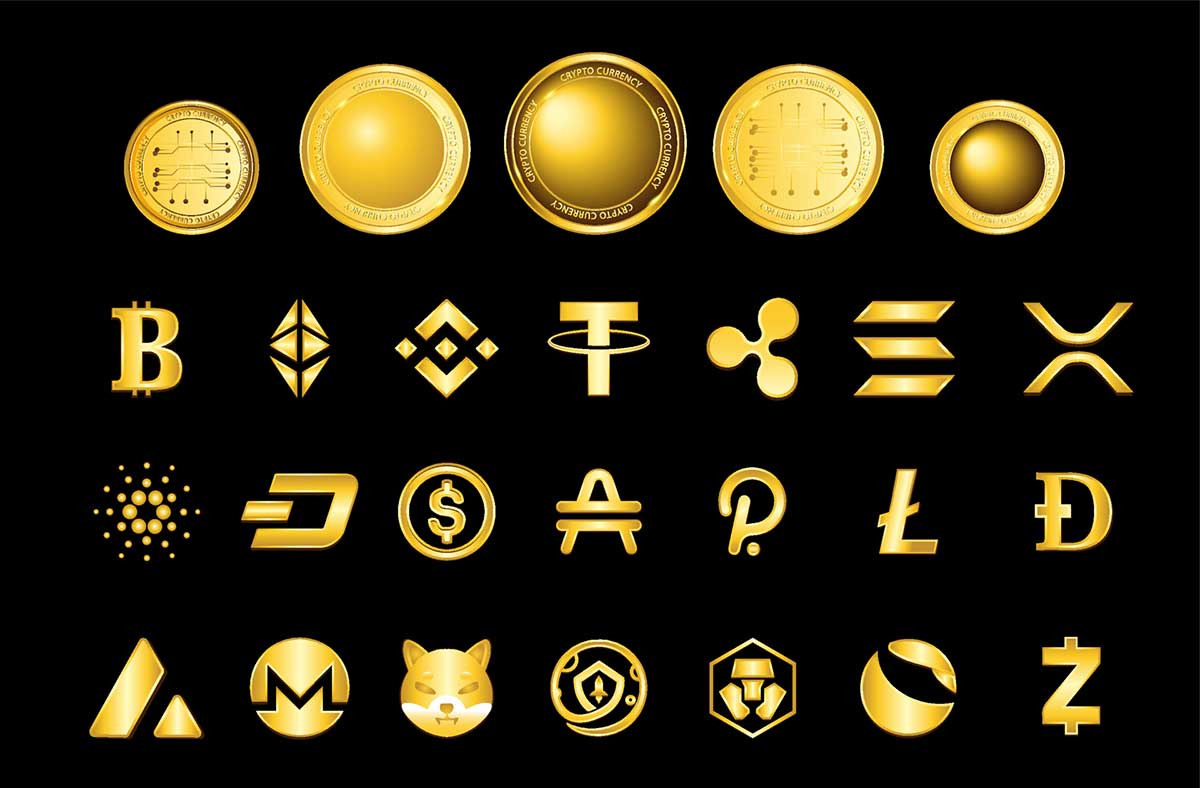How Does a Cryptocurrency Gain Value?

Cryptocurrency gains value through a combination of factors, including its utility and scarcity. Its utility comes from how it can be used to purchase goods and services or to store wealth. For example, Bitcoin has become an increasingly accepted form of payment at many online stores.
Additionally, cryptocurrencies have limited supplies which makes them scarce and valuable as demand increases relative to supply. Furthermore, speculation by investors can also drive up prices in the short-term if they expect future price appreciation due to news events or other catalysts that make people more optimistic about their prospects. Finally, government regulations can play a role in driving up values if they support cryptocurrency adoption or development of blockchain technology related projects like smart contracts.
Cryptocurrency gains value in a very similar way to traditional currencies. Demand and supply are the main factors that influence its price. It can be seen as an investment asset, much like stocks or commodities, which investors buy because they believe it will appreciate in value over time.
Additionally, some cryptocurrencies offer rewards for holders such as staking or transaction fees from other users of the network. This encourages people to hold the currency long-term, increasing demand and creating scarcity which ultimately drives up its price.
What Gives Cryptocurrency Value and How Does it Gain Value?
How Does Cryptocurrency Make Money?
Cryptocurrency makes money by providing a digital asset that can be exchanged for goods and services.
It allows users to transfer value securely, quickly, and cost-effectively without relying on third parties such as banks or other financial institutions.
Below are the main ways cryptocurrency generates income:
• Trading/Investing: Buying and selling of cryptocurrencies in exchange for fiat currencies (e.g., US dollars) or other digital tokens to generate profits from price fluctuations.
• Mining: Cryptocurrency miners use powerful computers to solve complex mathematical problems and receive rewards in the form of newly created coins or transaction fees paid in existing coins.
• Staking: Cryptocurrency holders can lend their crypto assets out to those who need them, earning interest on their holdings in return.
Overall, cryptocurrency provides a new way to store, send, and receive value without having to rely on traditional financial systems which could save time and money when making payments around the world.
What Backs Cryptocurrency Value?
Cryptocurrency value is backed by a number of factors:
• Market Demand: The supply and demand for cryptocurrencies affects the price, as with any type of asset. An increase in demand usually leads to an increase in value.
• Utility: Cryptocurrencies have utility in terms of their use cases, such as payment systems or smart contracts. As more people use them for various purposes, their value can rise.
• Security and Technology: Cryptographic technology helps ensure secure transactions and immutable ledgers, which adds to the credibility of digital currencies.
In addition, technological innovations help drive up prices due to increased user adoption.
Overall, cryptocurrency values are supported by market dynamics as well as several underlying technologies that make them attractive investments for many people around the world.
How Much Will Crypto Be Worth in 5 Years?
It’s impossible to predict the exact value of crypto in 5 years. However, some experts believe that it will be worth more than today based on its current growth trajectory.
Here are a few reasons why:
• Growing demand and adoption – Crypto is becoming increasingly popular with governments, businesses and individuals. This may lead to higher prices as more people invest in digital assets.
• More regulation – As regulations become clearer, investors may feel more comfortable buying crypto which could drive up demand and prices further.
• Increasing use cases – Cryptocurrencies are now being used for more applications such as payments, remittances and decentralized finance (DeFi). This could create an even bigger market for cryptocurrencies leading to higher valuations.
In conclusion, crypto has a bright future ahead of it with many potential catalysts that can fuel its growth over the next five years resulting in greater valuations than today.

Credit: www.security.org
How Does Cryptocurrency Lose Value
Cryptocurrency can lose value due to a variety of different factors, including market forces, changes in the technology underlying it, and government regulations. When demand for a particular cryptocurrency decreases or its technology becomes outdated, its price will decline as investors search for better options. Additionally, if governments impose stringent regulations on cryptocurrencies or decide to ban them altogether then their value is likely to drop drastically.
Who Controls the Value of Cryptocurrency
The value of cryptocurrencies is determined by the market forces of supply and demand. Prices are based on the perceived utility of a cryptocurrency and its underlying blockchain technology, as well as speculation about future price movements. As more people become aware of how digital currencies work, their prices tend to increase due to increased interest in investing in them.
Therefore, it can be said that the people who control the value of cryptocurrencies are those who buy and sell them in the open market.
Does Mining Crypto Increase Value
Mining crypto does not directly increase the value of any particular cryptocurrency, but it can help to secure the network and ensure that transactions are properly processed. Miners play an important role in verifying transactions on a blockchain, and being rewarded for their efforts in the form of newly-created coins or transaction fees helps incentivize them to continue mining. This helps to keep the network running smoothly and securely, which may result in increased demand for certain cryptocurrencies as users become more confident with its security and reliability.
What Causes Cryptocurrency to Rise And Fall
Cryptocurrency prices are driven by a variety of factors, including demand and supply dynamics, government regulations, news events and speculation. Demand for cryptocurrency is often determined by the belief that its value will increase in the future; when people believe there will be an increase in value they buy more coins, driving up the price. On the other hand, if people are worried about a coin’s future prospects or uncertain about government regulations on cryptocurrency then they might choose to sell off their holdings which could result in a decrease of price.
Other external factors such as news events can also cause rapid fluctuations in cryptocurrency prices – for example if negative news was released about Bitcoin it could cause investors to become hesitant and consequently drive down its price.
Cryptocurrency Has No Value
Cryptocurrency is a digital currency that has no intrinsic value as it is not backed by any physical commodity or government. While its popularity has grown in recent years, it remains highly volatile and subject to speculation without any central bank or government regulation. As such, cryptocurrency lacks the security of traditional currencies and can be difficult to convert into cash if you need money quickly.
Therefore, investing in cryptocurrency carries a high risk and may not be suitable for everyone.
How to Know Which Cryptocurrency Will Go Up
It can be difficult to know which cryptocurrency will go up in value or not, but there are several strategies that you can use to help determine the potential success of a digital currency. One of the most important things to do is research the digital currency itself and its underlying technology. Do your due diligence on how secure and efficient it is, what problems it solves, who is behind it, and any other relevant information.
Additionally, look at market trends for crypto trading over time; generally speaking, those cryptos with more consistent trading volume tend to have better chances of increasing in value. Finally watch out for news about new developments related to particular cryptocurrencies as these may indicate a jump in price – either positively or negatively depending on sentiment around them.
Does Cryptocurrency Have Cash Value
Cryptocurrency is a digital asset designed to work as a medium of exchange. While it does not have physical cash value, its intrinsic value lies in the fact that it can be exchanged for goods and services, usually through an online cryptocurrency exchange platform. Additionally, while some cryptocurrencies are backed by tangible assets such as gold or silver, most other coins do not possess any inherent worth beyond what their users ascribe to them at any given moment.
How Do Tokens Gain Value
Tokens gain value in two ways: First, tokens can be purchased directly from the issuing company or on a cryptocurrency exchange. The price of the token is determined by market forces, such as supply and demand. Second, tokens may also increase in value if they are used within an application that has become popular with users.
As more people use the app, there is increased demand for its underlying token which can lead to higher prices.
Conclusion
In conclusion, cryptocurrency gains value by being in demand and having a limited supply. Cryptocurrency is decentralized which means that it has no central authority to influence its price. The amount of energy and resources used to create cryptocurrencies also affects their value.
Additionally, the underlying technology behind the coin can have an effect on its worth as well as how secure it is from malicious actors. As long as there is a need for cryptocurrency, it will continue to be valuable for those who are looking for a secure digital asset alternative to traditional currency.







